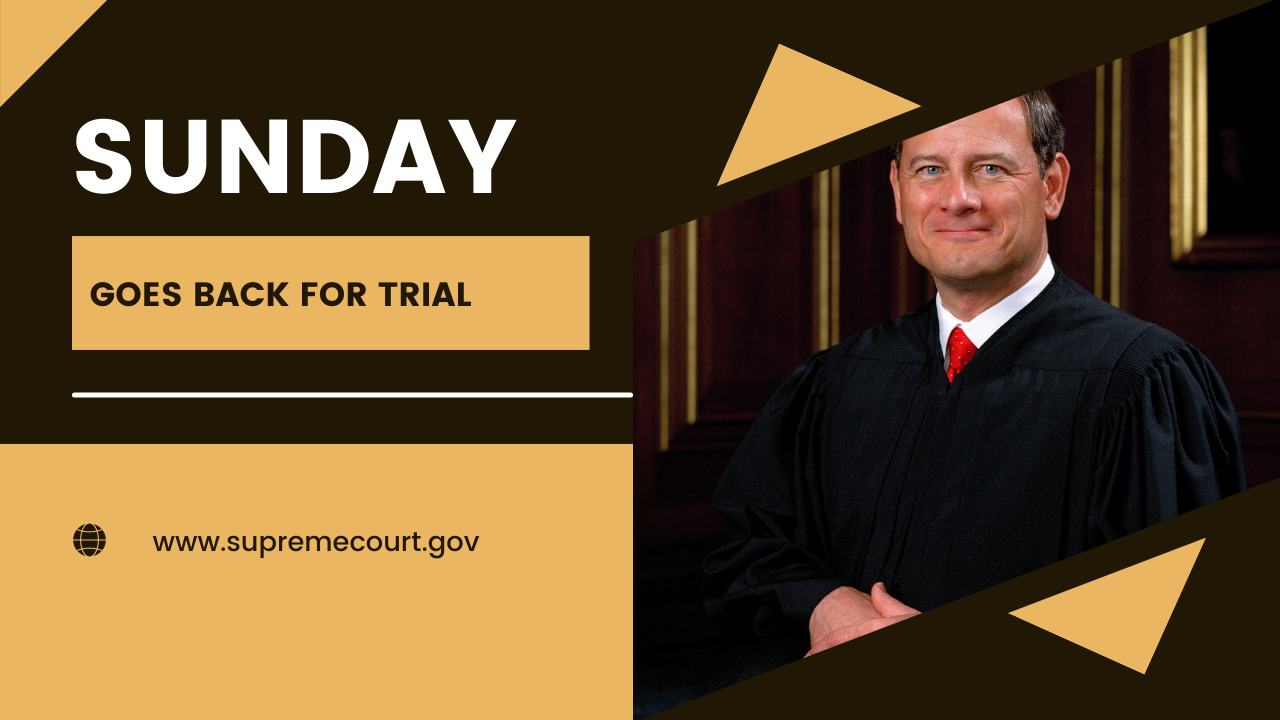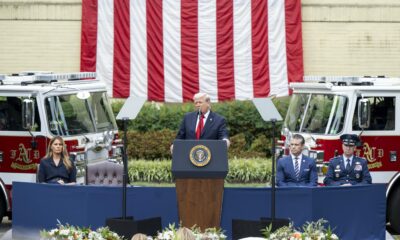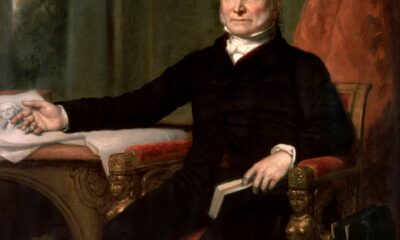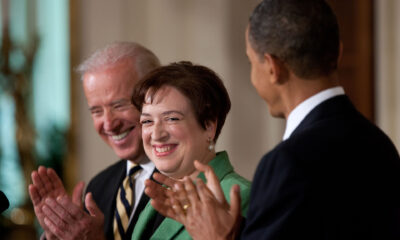Judicial
Sunday delivery case must go to trial – SCOTUS
The U.S. Supreme Court sent back for trial the case of a man forced out of a job for not wanting to work on Sunday.

A postal carrier, who resigned rather than get fired for not delivering parcels on Sunday, must have his day in court, the Supreme Court ruled today. Groff v. DeJoy, 598 US ____ (2023).
The Court’s holdings
In its opinion, the Court held that any employer seeking to deny a religious accommodation to an employee, must show that it will suffer substantial increased cost of doing business if it grants the accommodation. In so ruling, the Court clarified a decision in an earlier case that lower courts have been misapplying for years. That case was the Hardison precedent, that lower courts have interpreted to exempt am employer from religious accommodation if it causes “more than a de minimis cost” to it. TWA v. Hardison, 432 U.S. 63 (1977).
Justice Samuel A. Alito, writing for a unanimous Court, held that lower courts have misapplied Hardison ever since. Courts have seized on the “more than de minimis cost” phrase even though the decision itself gives it minimal emphasis. Today the Court holds that the costs to business conduct must be substantial to rate exemption from a religious accommodation. The Court further held that only the costs of doing business were relevant. The effect on other employees is of no moment unless it somehow incurs a higher cost of doing business.
Justice Sonia Sotomayor wrote a three-page concurrence in which Justice Ketanji Brown Jackson joined. In it she sought to point out that some “other employee” effects do contribute sufficiently to a cost of business.
Particulars of the Sunday delivery case
Gerald E. Groff, in 2012, began work for the U.S. Postal Service as a Rural Carrier Associate. As such he worked at a rural station and never anticipated having to work on Sunday. His assumption was safe – until Amazon started contracting with USPS to deliver certain packages for the “last mile.” Amazon wanted to offer seven-day delivery, and the Post Office agreed to this.
The Amazon arrangement works this way. Amazon picks up a customer’s package. (Today Amazon runs its own logistics system and no longer farms out shipping to FedEx, UPS, et al.) Amazon’s trucks deliver the package to that post office distribution point from which USPS says they can deliver the package to the customer with the least cost. Amazon itself is looking to cut costs, and if USPS can deliver the package through “the last mile” more cheaply than Amazon can arrange it on its own, that’s what Amazon prefers.
The problem is that Amazon seems to think its customers expect the same seven-day delivery no matter who carries the package for that “last mile.” So Mr. Groff received word that he might have to carry some Amazon packages on Sunday.
At first he simply transferred to another station, with only seven employees. He thought that would put him out of Amazon’s reach. It didn’t. So then he simply refused to deliver anything on Sunday. USPS, while always finding someone else to carry Amazon packages, “progressively disciplined” Groff for being a no-show. Finally (January 2019), he resigned.
The suit
Not long after that, he sued under Titlte VII of the Civil Rights Act of 1964. He said USPS could have accommodated him without “undue hardship.” But the trial court (Pennsylvania Middle District Court) granted summary judgment to USPS. The Third Circuit Court of Appeals affirmed – and cited their reading of the Hardison case to justify that.
Today’s ruling vacates the summary judgment and remands the case for further consideration. Which does not mean that Mr. Groff prevails, but does mean his case will get a full trial.
In his opinion, Justice Alito paid particular attention, not merely to the holdings in Hardison, but also to the pleadings. In the pleadings, the original defendant-petitioners (TWA and the Machinists’ union) actually said the Establishment Clause would make any religious accommodation unconstitutional. Not only that, but they also referred to Lemon v. Kurtzman.
For reasons best known to history, the Supreme Court as it then existed, didn’t bite. They simply ruled on Title VII and made an ambiguous statement about hardships and costs, de minimis and otherwise. Today the Court clarified that – something Justice Alito clearly wanted to do.
Why a Sunday (or other) Sabbath is so important – commentary
Alito also noted that the Lemon Test is no longer viable. Kennedy v. Bremerton School District, 579 U.S. ____ (2022). He might want to note that the Establishment Clause is highly overrated. It was meant to forbid the establishment of a particular religion, not to declare that all religion was suspect. But that’s exactly what courts – and misguided statesmen like James G. Blaine – have made of it. Last year the Court overruled Blaine, too – and with him that anti-theist reading of the Establishment Clause. Carson v. Makin, 597 U.S. ____ (2022).
In short, this entire case is a holdover from the Modernist Era, that sought to do away with all religion in favor of the primacy, indeed worship, of modernity per se. It also ignores the reason for a Sabbath – literally one day in seven to rest. Some day, someone will have to argue for that one-day-in-seven as a necessary work rule. Anyone looking for an extra-Biblical justification need look no further than the decree by Emperor Napoleon I to abandon the French Republican Calendar, with its ten-day weeks, and return to the Gregorian Calendar with its seven-day weeks. The French, in their zeal to decimalize everything, forgot that human beings need such a rest as the Sabbath provides. Seven days is the best interval anyone has found. If one calls this arbitrary, one might as well institute something like the French Republican Calendar, with English-sounding month names.
Gerald Groff now gets his day in court. That’s cause for celebration.
Terry A. Hurlbut has been a student of politics, philosophy, and science for more than 35 years. He is a graduate of Yale College and has served as a physician-level laboratory administrator in a 250-bed community hospital. He also is a serious student of the Bible, is conversant in its two primary original languages, and has followed the creation-science movement closely since 1993.
-

 Civilization2 days ago
Civilization2 days agoWhy Europe Shouldn’t Be Upset at Trump’s Venezuelan Actions
-

 Accountability5 days ago
Accountability5 days agoWaste of the Day: Principal Bought Lobster with School Funds
-

 Executive3 days ago
Executive3 days agoHow Relaxed COVID-Era Rules Fueled Minnesota’s Biggest Scam
-

 Constitution4 days ago
Constitution4 days agoTrump, Canada, and the Constitutional Problem Beneath the Bridge
-

 Christianity Today2 days ago
Christianity Today2 days agoSurprising Revival: Gen Z Men & Highly Educated Lead Return to Religion
-

 Civilization3 days ago
Civilization3 days agoThe End of Purple States and Competitive Districts
-

 Executive3 days ago
Executive3 days agoWaste of the Day: Can You Hear Me Now?
-

 Executive4 days ago
Executive4 days agoWaste of the Day: States Spent Welfare in “Crazy Ways”












